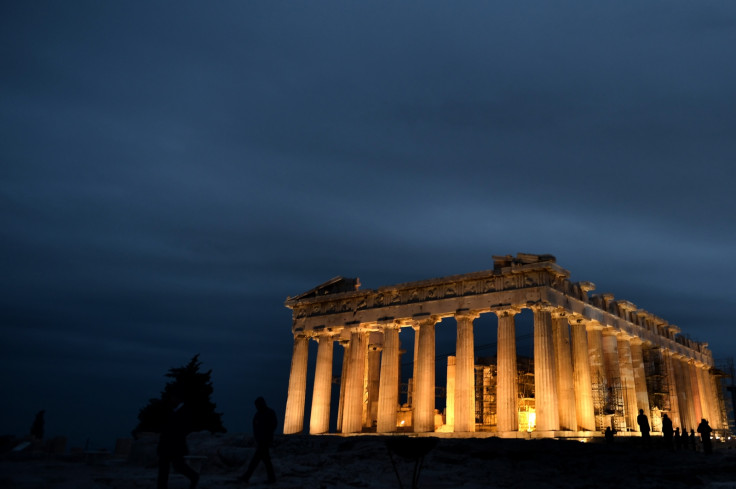Athens: Football fans vandalise prison cell of Socrates, other ancient Greek landmarks

Football supporters have defaced part of the ancient Athenian Long Walls with graffiti, as security guards claimed that a government scheme to open ancient sites 24 hours a day – combined with staff shortages – has left ancient monuments open to vandalism.
The walls were originally erected in the 5th century BC. Having been destroyed by the city state of Sparta in 403 BC, they were rebuilt with the help of the Persians during the Corinthian War.
Vandals also defaced the prison cell in the Acropolis where philosopher Socrates is believed to have been held prior to being made to kill himself in 399 BC by drinking hemlock for "corrupting the youth of Athens".
Greek Culture Ministry staff have removed the graffiti. The incidents come as the cash-strapped Greek state granted 24-hour access to key archaeological sites.
Monument guards told the Greek Reporter that they fear other ancient sites may be vandalised, as staff shortages mean they cannot patrol the sites around the clock.
In 2012, archaeologists warned that the Greek financial crisis had resulted in government archaeological grants being frozen, and a surge in antiquities smuggling.
Marketing Greece's ancient heritage is seen as key to the country's economic revival, and last year there was a surge in the number of visitors to the country's ancient sites, according to government figures.
© Copyright IBTimes 2025. All rights reserved.




















